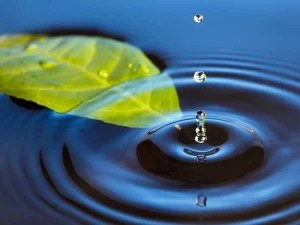Implementing water-saving methods in college supports sustainability. Using low-flow fixtures and harvesting rainwater cuts usage, benefiting the environment and finances. Despite challenges like funding constraints and resistance, incorporating these practices into education boosts eco-awareness. Involving students in conservation fosters critical thinking and accountability. Teaching water-saving techniques shapes future environmental stewardship, instilling sustainability principles. Explore the significance of water conservation practices for fostering environmental consciousness.
Key Takeaways
- Integrating water conservation practices in college curriculum enhances environmental awareness and promotes sustainable practices.
- Engaging students in conservation efforts fosters critical thinking, environmental responsibility, and practical understanding.
- Teaching water conservation principles shapes future environmental stewardship practices and instills a sense of responsibility towards natural resources.
- Conservation techniques in colleges save costs, benefit the environment, and contribute to sustainable water management.
- Overcoming challenges like limited funding and resistance to change requires strategic planning and proactive solutions.
Importance of Water Conservation Techniques
Water conservation techniques play a vital role in sustainable environmental practices within academic institutions. Implementing strategies like low-flow fixtures, rainwater harvesting, and xeriscaping can significantly reduce water usage, benefiting both the environment and the institution. Studies show that colleges using these techniques not only conserve water but save on operational costs, making it a win-win situation for all stakeholders involved.
Challenges in Implementing Conservation Methods
Encountering obstacles when integrating liquid preservation techniques into college infrastructure is a common challenge faced by many academic institutions striving for sustainable practices.
- Limited Funding
- Resistance to Transformation
- Lack of Awareness
These challenges often hinder the effective implementation of water conservation methods on college campuses, highlighting the need for strategic planning and proactive solutions in promoting sustainable water practices.
Integrating Conservation Practices in College Curriculum
To improve environmental awareness and encourage sustainable practices, colleges are actively integrating water conservation techniques into their curriculum. By incorporating these practices into various courses, students gain valuable knowledge on the importance of water conservation and sustainability. This integration helps cultivate a sense of responsibility towards the environment, shaping the future generation into environmentally conscious individuals equipped to address global water challenges effectively.
Engaging Students in Water Conservation Efforts
Engaging students through hands-on projects and interactive workshops promotes a deeper understanding of the practical applications of water conservation techniques in real-world scenarios.
- Encourages active participation
- Cultivates critical thinking skills
- Nurtures a sense of environmental responsibility
Future Impact of Teaching Water Conservation
The educational initiatives focused on liquid preservation techniques in university settings are poised to have a lasting impact on shaping future environmental stewardship practices. By instilling water conservation principles in students, colleges can cultivate a generation of environmentally conscious individuals. This approach not only contributes to sustainable water management but encourages a sense of responsibility towards natural resources, ensuring a more sustainable future for all.
Frequently Asked Questions
How Can Water Conservation Techniques Benefit the Environment and Communities?
Water preservation methods benefit the environment and communities by reducing water waste, safeguarding natural resources, mitigating drought risks, and promoting sustainability. Implementation through education and practice can lead to long-term positive impacts on ecosystems and societal well-being.
What Are Some Innovative Solutions to Overcome the Challenges Faced in Implementing Water Conservation Methods?
Innovative solutions to overcome challenges in implementing water conservation methods involve harnessing technology for efficient irrigation systems, promoting public awareness campaigns, and incentivizing water-saving practices. Collaboration among stakeholders and policy support are essential for successful implementation.
How Can Colleges Effectively Integrate Water Conservation Practices Into Their Curriculum?
Colleges can effectively integrate liquid preservation practices into their curriculum by incorporating multidisciplinary approaches, hands-on experiences, and partnerships with local organizations. Creating awareness, promoting research, and offering practical courses can inspire students to champion sustainable liquid management.
What Are Some Creative Ways to Engage Students in Water Conservation Efforts on Campus?
Engaging students in water conservation efforts on campus can be achieved through interactive workshops, competitions, and awareness campaigns. Students can participate in hands-on projects like creating rain gardens or monitoring water usage, encouraging a culture of sustainability.
What Potential Long-Term Effects Can Teaching Water Conservation Have on Future Generations and the Environment?
Teaching water preservation can lead to a lasting impact on future generations and the environment by instilling sustainable practices. This education promotes resource conservation, nurtures eco-conscious behaviors, and cultivates a culture of environmental stewardship for a greener future.
Conclusion
Ergo, the amalgamation of water preservation methods within college curriculum offers a crucial opportunity to nurture environmentally aware individuals. By tackling the obstacles and involving students in hands-on conservation endeavors, institutions can mold a future generation prepared to have a significant influence on worldwide water usage trends. The future potential of instructing water conservation in college shows potential for fostering a sustainable and accountable society.
You May Also Like:


